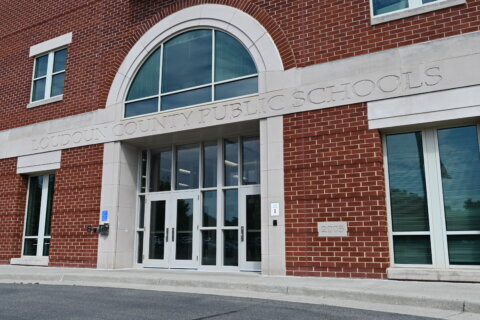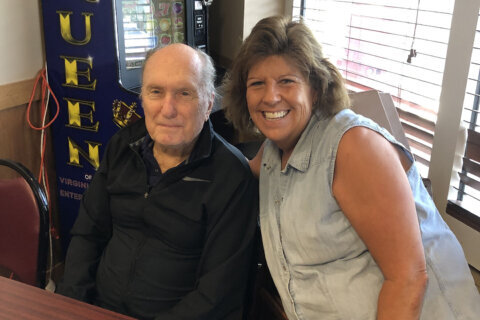A circuit judge said Monday that he will not halt a special grand jury investigation of Loudoun County Public Schools despite a lawsuit seeking to stop it.
Judge James Plowman — who previously served as the county’s elected Republican commonwealth’s attorney — denied the motion for temporary injunction in the suit by the Loudoun County School Board, which was seeking to halt the special grand jury convened by Virginia Attorney General Jason Miyares.
There was no discussion of when the special grand jury might complete its work, but the investigation will go on.
In a tweet, Miyares responded to the decision on Monday afternoon saying “we are pleased with the court’s ruling.”
Miyares convened the special grand jury to look into how the school system handled two sexual assaults by the same high school student last year.
“This is a win for parents and students across the Commonwealth,” Miyares wrote. “I will never stop fighting for justice and to protect the families of Loudoun County and the Commonwealth.”
Plowman acknowledged that “teachers, students and parents are third parties” are being subpoenaed, but “the school board failed to prove irreparable harm.”
School board attorneys Robert Falconi and Steven Webster argued the special grand jury wasn’t limiting its questions to potential criminal wrongdoing, and was focusing on things ranging from transgender issues to Facebook posts.
Quoting from the Virginia handbook for jurors, Webster said the special grand jury could “not be convened to go on a fishing expedition,” and “not to determine if a law is good or bad.”
Arguing for Miyares was deputy Attorney General Steven Popps. He told Plowman that the special grand jury investigation was legal and constitutional.
“The school board does not get to determine the scope of the investigation. The school board is not above the law,” Popps said.
The school board had argued there was no evidence of criminal wrongdoing, and the goal of the special grand jury was to release a report critical of school policies. The judge said he didn’t agree with the prediction of a report without indictments.
“You cannot know where this will lead,” Plowman said, adding members of the the school board would not be bound by the recommendations in a critical report. “They can turn their eyes and walk the other way.”
Plowman denied the school board’s motion for a temporary injunction. The school board could appeal the decision to Virginia’s Court of Appeals, although it’s not clear whether an appeal will be pursued.
As WTOP first reported in May, the school board sought a temporary injunction to prohibit further action by the special grand jury. In its lawsuit, the board said an executive order issued by Gov. Glenn Youngkin on his first day in office went beyond his legal power, and that the special grand jury empaneled by Miyares is being used unlawfully.
When the hearing began, Plowman initially ruled against an attempt by the Attorney General to close the hearing to the public, and seal the transcript.
In a June 5 response, Miyares said, “There is no First Amendment right of access to grand jury proceedings,” and that opening the hearing to the public would damage the normally secret criminal investigatory process of the grand jury. Miyares also asked that the transcript from the hearing be sealed.
Plowman reminded Popps, “This is not a grand jury proceeding.”
Miyares has previously called the lawsuit “legally baseless” and asked that it be dismissed: “The Complaint seeks to shut down or control a lawfully instituted criminal investigation and any subsequent prosecutions.”
However, in a new motion filed Friday, the school board said no part of its suit would “disclose any matters that are covered by grand jury secrecy provisions,” and that closing the hearing would violate the First Amendment.
“Civil hearings are routinely open to members of the press and the public and that openness plays a ‘significant and positive role’ in the functioning of the courts and in public confidence in the judicial system,” wrote Webster, citing previous appeals court rulings.
“Public access serves to promote trustworthiness of the judicial process, to curb judicial abuses, and to provide the public with a more complete understanding of the judicial system, including a better perception of fairness.”
Plowman quickly determined the hearing would be open to the public, before moving onto whether the special grand jury should be curtailed.
Theo Stamos, the special counsel overseeing the special grand jury, declined comment after Monday’s hearing.
In a statement issued after the hearing, the school system said it’s considering all its legal options, but that no decision has been made on whether to appeal.
The Associated Press contributed to this report.








